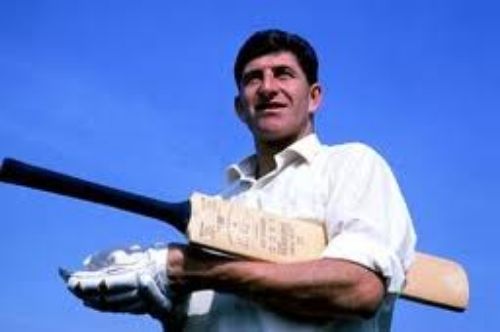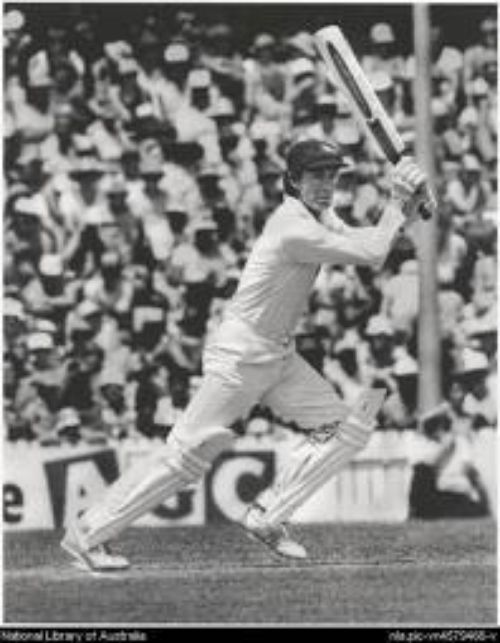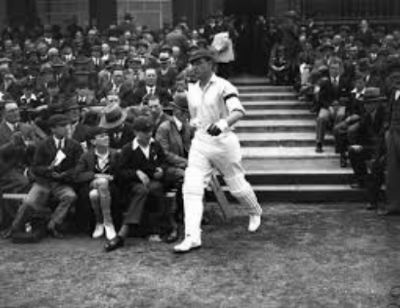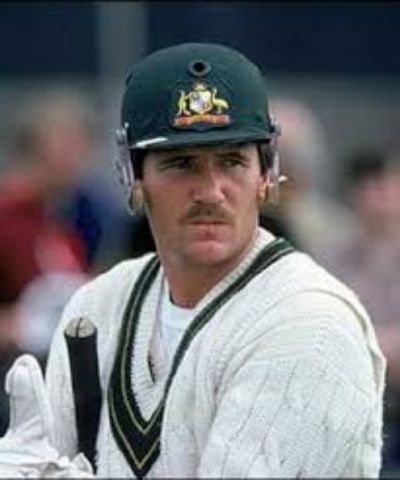watson
Banned
Thought I’d have a go at creating a great Ashes contest by creating two great teams. There would be 10 test matches, 5 in England followed by 5 in Australia.
Both the England and Australian teams are not necessarily the strongest ever (at least on paper), but their respective combinations of skill and character should make for a thrilling slugfest on the field. Hopefully, something approaching the toe-to-toe contests of the famous 2005 series.
Like other recent selections of favourite teams I’m going to reveal the teams slowly, player by player. So here goes..........

England’s No.4: Ken Barrington
Ken Barrington began his career in 1955 against South Africa, but he was soon dropped and had to wait until the Barbados Test match of 1960 to score his first century. The Wisden match report shows that he did so under a bumper-barrage from the two opening bowlers Wes hall and Chester Watson. The same tactic was repeated by the West Indians during the next test match at Trinidad. However, Barrington handed-out the same treatment – another century in just under 6 hours;
Therefore, Barrington takes the valuable No.4 spot in this Ashes team due the net positive effect he had on the English batting order. There is also the fact that Barrington was one of only three batsman from the 1960s who averaged more than 50 (30 innings or more). The other two were Graeme Pollock (60.97) and Garry Sobers (57.78). Barrington’s batting might have been ungainly, but his numbers certainly weren’t.
Both the England and Australian teams are not necessarily the strongest ever (at least on paper), but their respective combinations of skill and character should make for a thrilling slugfest on the field. Hopefully, something approaching the toe-to-toe contests of the famous 2005 series.
Like other recent selections of favourite teams I’m going to reveal the teams slowly, player by player. So here goes..........

England’s No.4: Ken Barrington
Ken Barrington began his career in 1955 against South Africa, but he was soon dropped and had to wait until the Barbados Test match of 1960 to score his first century. The Wisden match report shows that he did so under a bumper-barrage from the two opening bowlers Wes hall and Chester Watson. The same tactic was repeated by the West Indians during the next test match at Trinidad. However, Barrington handed-out the same treatment – another century in just under 6 hours;
These two centuries typify the character and style of this great English batsman – stoic and methodical. However, despite Barrington’s relative unattractiveness as a batsman he eventually became paramount to the English cause. Significantly, England managed 31 victories during Barrington’s 82 Tests, and in those victories he averaged 64.42. In 39 drawn Tests he averaged 67.05. However, when Barrington failed, England failed. In the 12 Tests that England lost he averaged only 30.50......After doing little for half an hour, Hall and Watson changed ends and unleashed a blistering attack of bumpers and short-pitched balls which sent England reeling to 57 for three with Pullar, Cowdrey and May gone. Barrington and Dexter brought a fine recovery with a stand of 142 in two hours thirty-seven minutes. At one point Hall was cautioned by the umpire, Lloyd, for excessive use of short-pitched ball in accordance with Law 46. England finished the first day with 220 runs for four wickets and next morning Barrington and Smith continued the improvement. The other umpire, Lee Kow, cautioned Watson for infringing Law 46 early in the day and after that there were only a few short balls.
Barrington batted five hours fifty minutes for his second successive Test century in his only two innings against West Indies.
Wisden - West Indies v England
Therefore, Barrington takes the valuable No.4 spot in this Ashes team due the net positive effect he had on the English batting order. There is also the fact that Barrington was one of only three batsman from the 1960s who averaged more than 50 (30 innings or more). The other two were Graeme Pollock (60.97) and Garry Sobers (57.78). Barrington’s batting might have been ungainly, but his numbers certainly weren’t.
Last edited:






